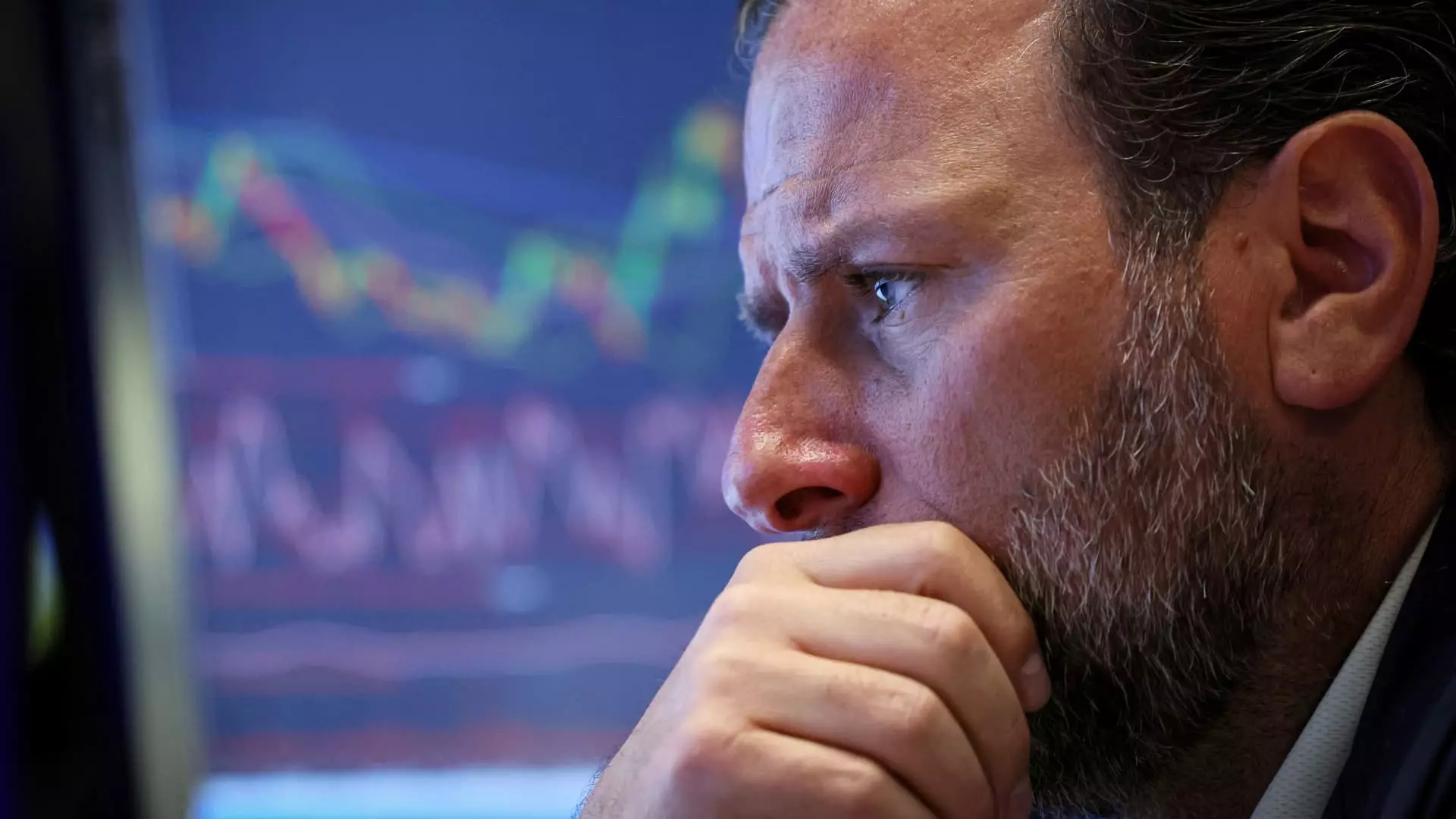The recent volatility in the bond market has been a cause of concern for equity investors, raising questions about how rising yields will affect stocks in the year 2024. According to Goldman Sachs, the key threshold to watch out for is 5% on the 10-year Treasury yield. In a comprehensive 19-page report analyzing market data dating back to the 1980s, the Wall Street firm highlighted that once this threshold is breached, the correlation between bond yields and stocks tends to turn negative.
Goldman Sachs emphasized that while there is no specific ‘magic number’, historically, bond yields reaching around 5% have signaled a potential problem for equities. This is the point at which the correlation with bond yields shifts from being decisively positive to negative. The benchmark 10-year yield recently rose by 5 basis points to 4.67% following data indicating a higher-than-expected increase in employee compensation costs at the beginning of the year, raising concerns about persistent inflation.
Market Sentiment and Valuations
Currently, investors are said to be in the “optimism phase” of the market cycle, characterized by growing confidence and complacency leading to higher valuations. Goldman Sachs noted that equity markets are particularly sensitive to movements in bond yields at this stage, with equities underperforming when yields rise due to overheating and inflation concerns. Conversely, stocks tend to outperform when the market anticipates interest rate cuts by central banks.
The 10-year Treasury yield, a key indicator affecting mortgage rates, auto loans, and credit cards, has seen an increase of almost 80 basis points this year as the market adjusts to a “higher-for-longer” rate environment. With the Federal Reserve’s fed funds rate currently at 5.25%-5.50%, investors are recalibrating their expectations. Initially forecasting multiple interest rate reductions at the start of the year, the market is now pricing in a 75% probability of just one rate cut, according to the CME Group’s FedWatch tracker.
Warren Buffett’s Perspective
Legendary investor Warren Buffett has often highlighted the significant impact of interest rates on investments. He has emphasized that higher rates have a substantial gravitational pull on asset values, diminishing the present value of future earnings. As yields continue to rise, the appeal of risk assets weakens, with shorter-term Treasury bills and longer-term Treasury notes emerging as attractive alternatives to stocks.
The relationship between rising bond yields and equity markets is a critical factor to monitor for investors. As yields approach the 5% mark on the 10-year Treasury yield, the dynamics between bond yields and stocks may shift, potentially impacting market performance. Understanding the implications of higher yields and their influence on investor sentiment and valuations is essential for navigating the evolving market landscape in 2024 and beyond.

